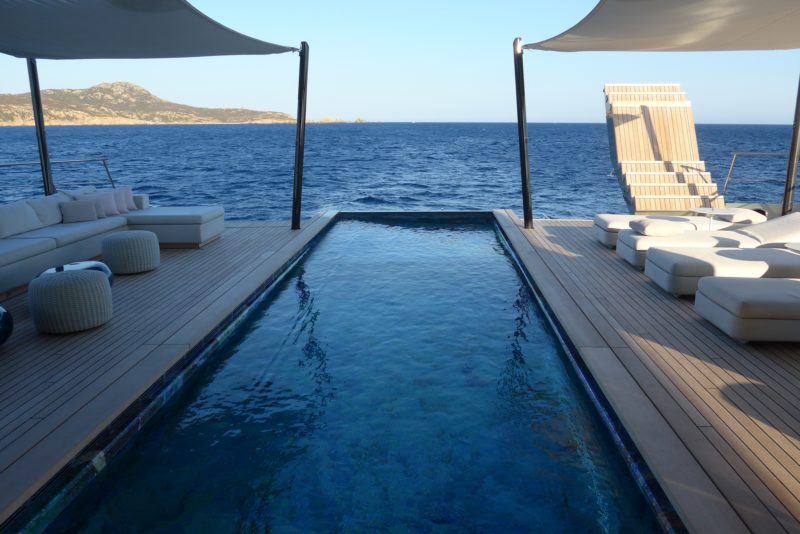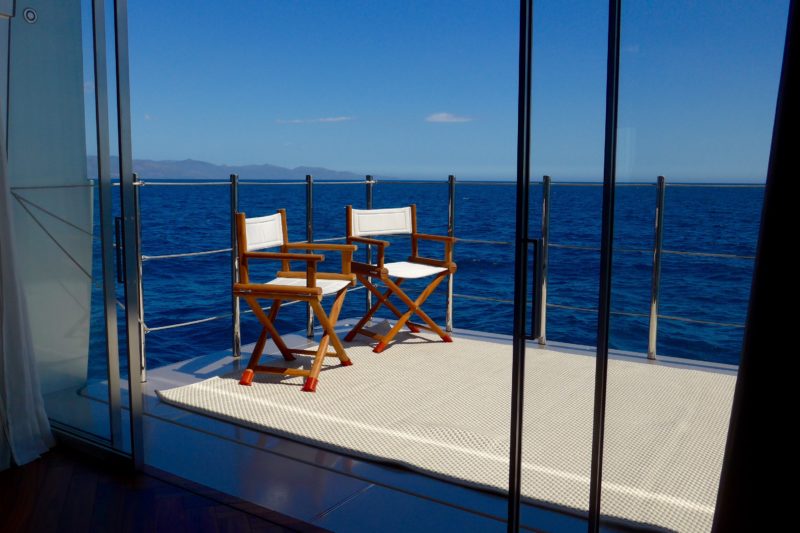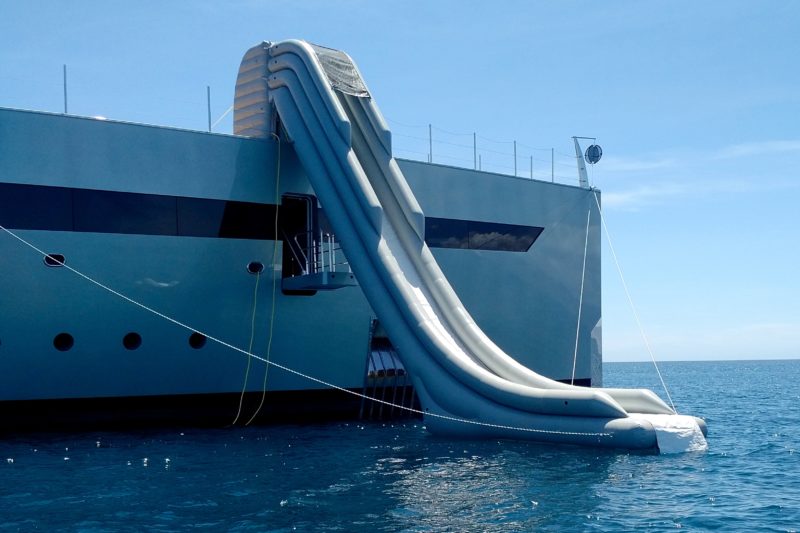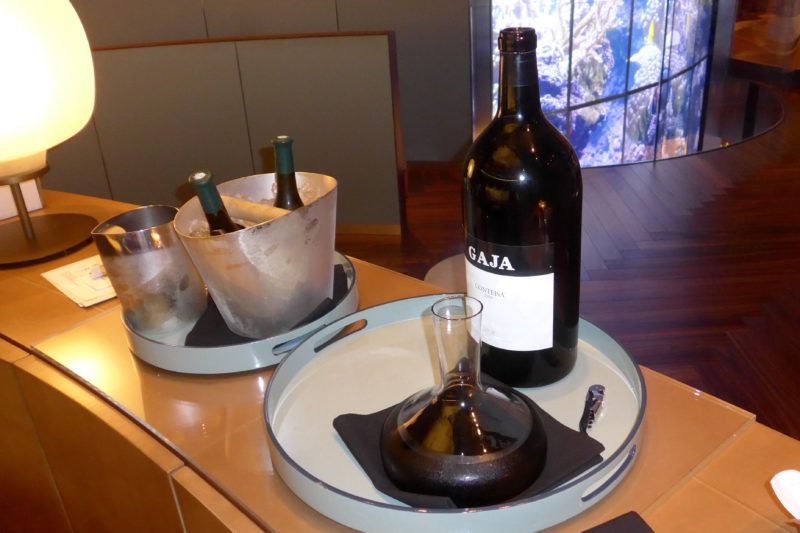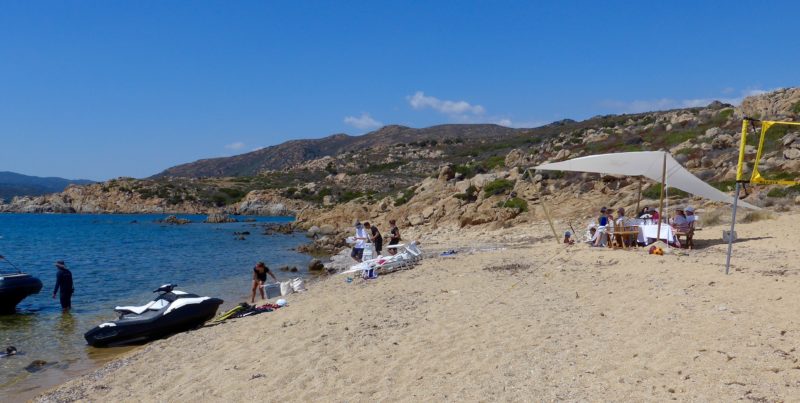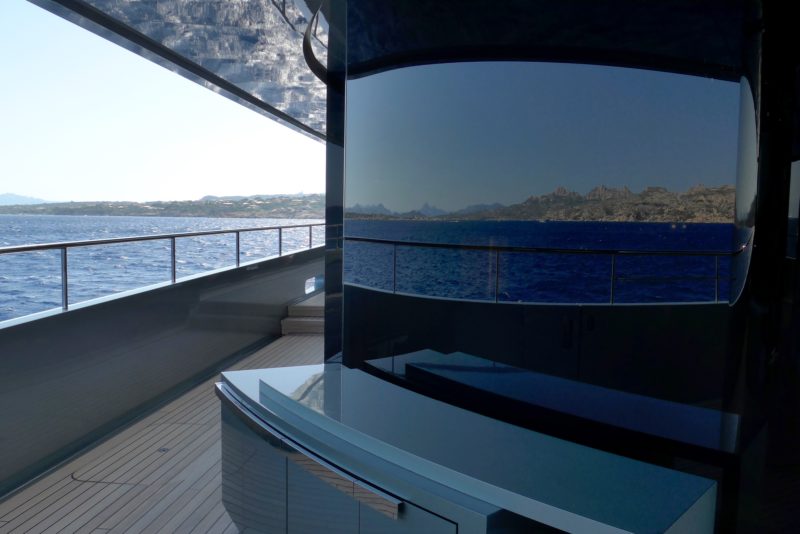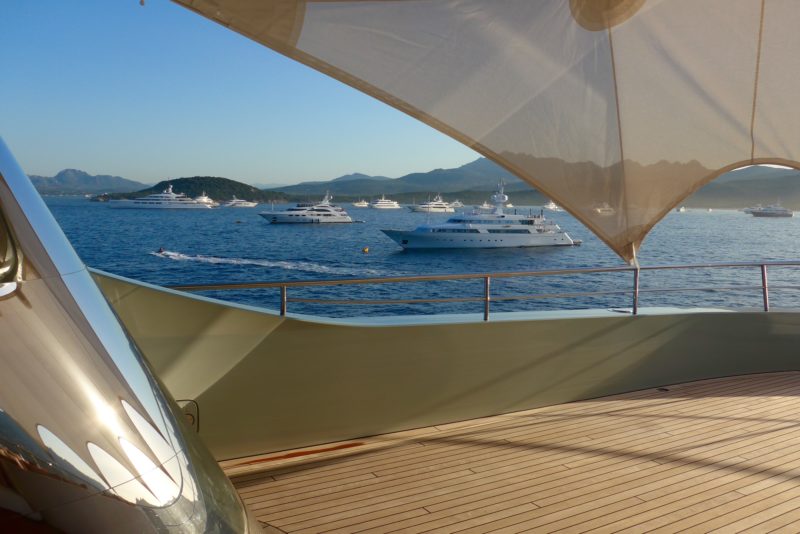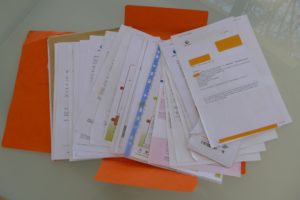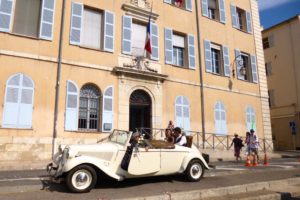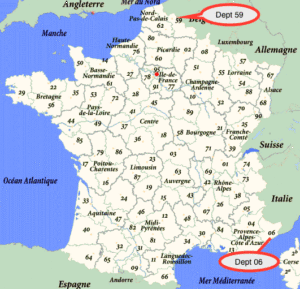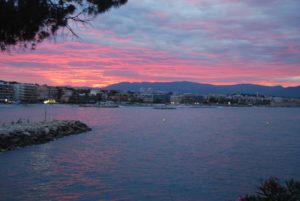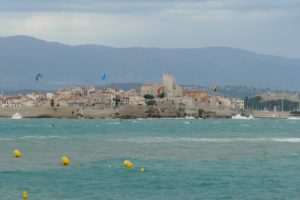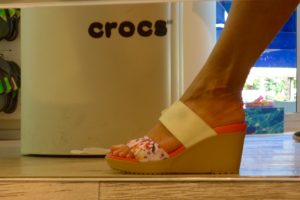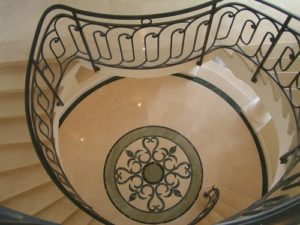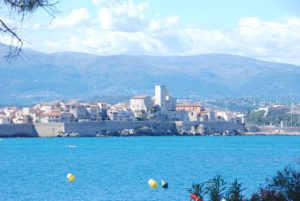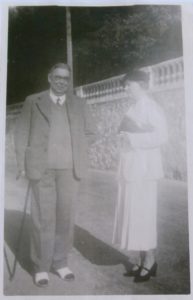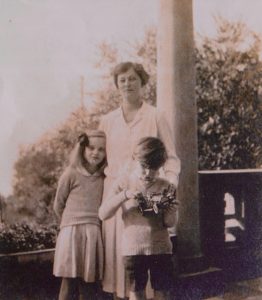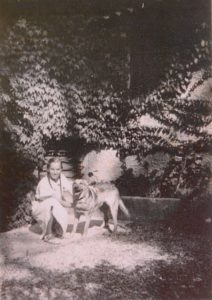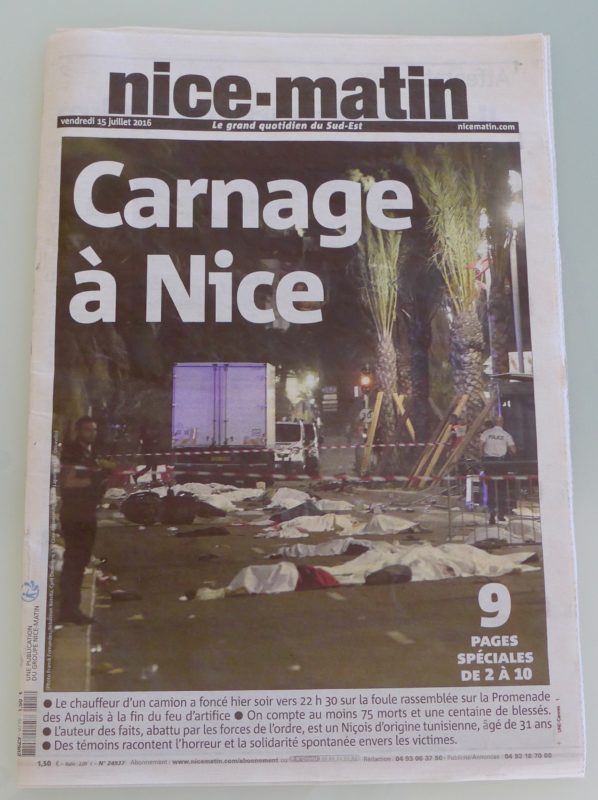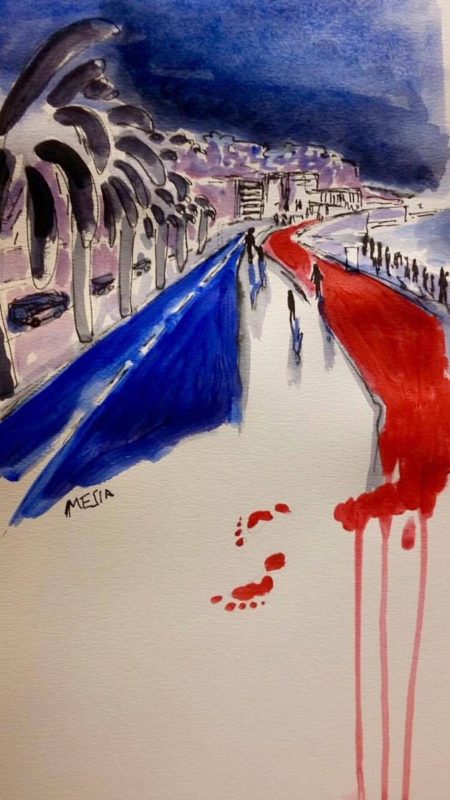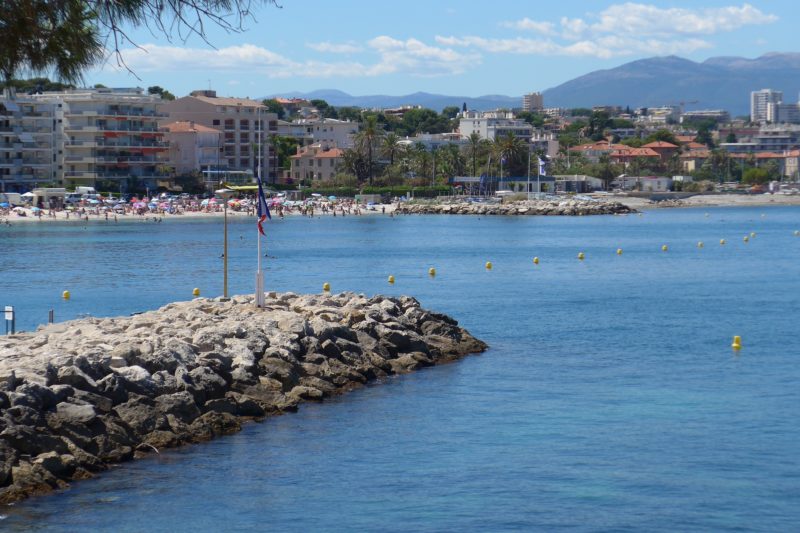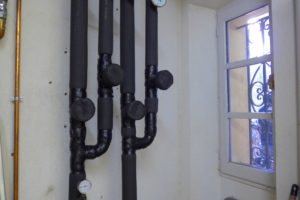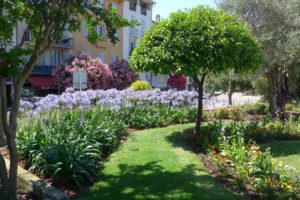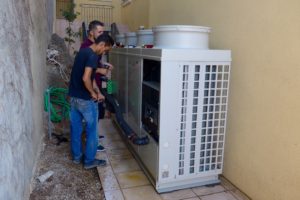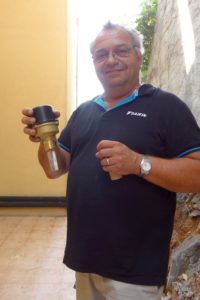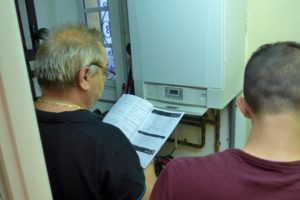My dive into France’s linguistic obsession with food began with the summer shoe sales.
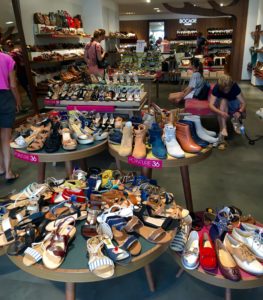
Twelve-year-old Lolo and I were meandering recently through the narrow streets of old Antibes, where the right-footed inventories of its shoe stores were displayed out front. The famous French sales had begun. The shoes dazzled, grouped by size and stuck with colourful dots that corresponded with the markdown: 20% or 40% or 70%. Lolo and I weren’t spending money. We were saving it.
We each found a pair of sandals. Mine came from the size 38 table. Hers came from the array of 39s. For the first time, my offspring’s size overtook mine.
It has been coming for a while. Years ago Lolo’s doctor in Toronto predicted that around the age of 12, she would reach her mother’s height – and keep on going. And while I still have a blessed centimeter on my daughter, I find myself standing up taller in family photographs.
A couple years ago a blog post from Kristin Espinasse’s French Word-A-Day winged into my inbox during a family ski trip. Manger la soupe sur la tête de quelqu’un: The phrase resonated.
Let’s hope not, I thought. I didn’t want anyone eating soup off my head. Even if the person taller than I was – as the saying implied – was my kid.

Lolo, my francophone, was busy fueling up for the morning’s slopes. She already knew the French phrase, she said.
I, of course, had never heard it so gave the words a little practice. “Aujourd’hui, Maman peut manger la soupe sur la tête de Lolo,” I said at the breakfast table in a ripe Anglo accent, ”mais bientôt, Lolo pourra manger la soupe sur la tête de Maman.” Today, I can eat soup on Lolo’s head, but soon. . . .
Yes, Lolo agreed. I had it right in all senses.
It was hardly the first time I’d heard food enter the French lexicon to describe a situation that had nothing to do with eating. In many ways it’s unsurprising. French food ranks among the finest in the world, and the pursuit of the Michelin star in this land often remains an elusive, life-long dream. France’s love affair with food filters into cooking and eating at less exalted levels, too.
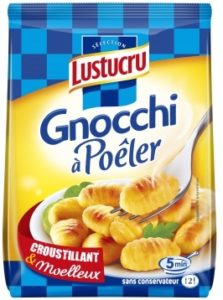
Last summer my friend Véro introduced Lolo to her favourite French meal, which centers on a store-bought package of Lustucru-brand Gnocchi à Poêler. I began making the gnocchi following the simple directions on the back of the bag. Melt butter in a frying pan; seal the potato dumplings on high heat; lower the heat and cover until the gnocchi are soft on the inside. Then, like Véro, I pair the pan-fried gnocchi with an egg over-easy. The yolk makes a perfect dip.
This summer I’ve learned that in a French household, even a simple recipe like this one deserves better. One evening as Véro whipped up a batch of Gnocchi à Poêler for her daughter and mine, she explained that I must prepare the pan with Such-and-Such, a blend of four particular oils.
I’d never heard of it.
And she insisted that the eggs must be fresh from the market that day.
A good North American, I store a dozen eggs in my fridge. Just in case I decide to make six batches of brownies. Or in case my family decides to pop in for breakfast from Chicago.
Food – whatever its level of splendour – is a big deal in France. It makes sense that this sentiment seeps into the language.

Take junk food. Larousse, a classic French dictionary, won’t even elevate “junk food” to phrase-status. To this publishing house, junk food is simply la nourriture de mauvaise qualité. Food of poor quality. Other dictionaries bestow junk food with the name la malbouffe, where mal is “bad” or “evil,” and bouffer is a more vulgar verb for “to eat” – more along the lines of “to chow down” or “to stuff yourself.” Or taking yet another tack: Manger des cochonneries means “to eat junk food” – while, just to cement the perception of the food category, dire des cochonneries is “to talk dirty.”
Food also cooks up some colourful French idioms:
“Je suis dans le potage,” Véro wrote to me in an email late one evening, knowing I’d like the turn of phrase. Fortunately she wasn’t sitting in a bowl of soup. I found a dictionary. She was merely in a bit of a mess.
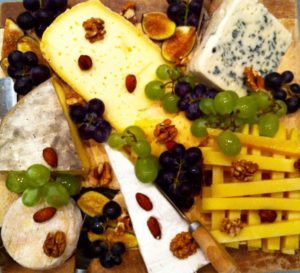
This beauty came up one day at my Alliance Française class in Toronto: Mettre les pieds dans le plat (“to put your feet in the dish (of food)”). It’s apparently the French way of putting your foot in your mouth. “Le plat is worse than la bouche,” Jean-François insisted. “You have to be supple.”
My long-time French instructor approaches his native tongue with an equal mix of love and irreverence. It spices up the classroom conversation – while sharing out an uncanny number of French phrases that involve food.
Mener à la baguette (“to lead with a long stick of French bread”) was a phrase Jean-François scrawled on the white board a while back. To boss someone around. I loved the imagery from the start. Only recently did I discover that a lesser-known meaning of baguette is “chopstick” – or, indeed, “baton.”
Boire le vin jusqu’à la lie (“to drink wine until the dregs”) is a particularly French way to prod someone to finish what they begin.
Jean-Francois’ personal favourite, I think, is un pot-de-vin (“a jar of wine”). More than once he has mentioned this peculiarly French way of saying “a bribe.”

As wine and baguettes blend their way into French phraseology, we simply need the cheese. But worry not. En faire tout un fromage (“to make such a cheese”) is how the French make a mountain out of a molehill. It seems an odd way to sully the good name of cheese, but on introspection, calling your Anglophone boss “the big cheese” doesn’t make sense either. (In France, the boss is la grosse légume. The big vegetable.)
Meanwhile, the summer pushes on and Lolo continues to adore her gnocchi. And her sleep – lots of deep, dreaming sleep. Sprinkled with a healthy dose of exercise and Côte d’Azur sunshine, I fear my leggy tween will overtake my height before we return to Toronto for the start of school.
The last thing I’ll be offering her this summer in France, then, is soup. I don’t want to give her any ideas.
* * *
P.S. What French-language food phrases can you share?








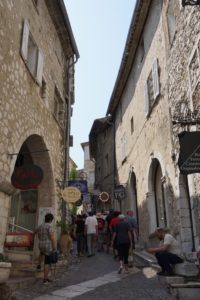

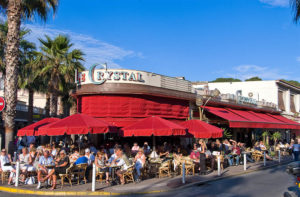


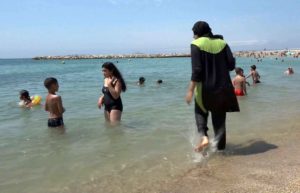

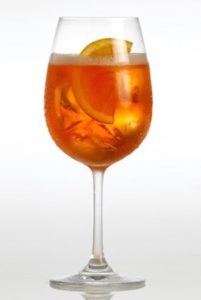
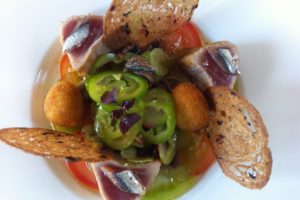

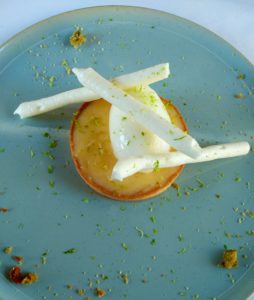

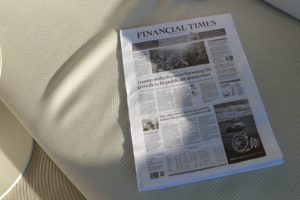 As the rosé wine flows and lunch moves into its third hour, the owner and his wife begin to pop up and down from the table as more guests arrive. Johnny chats about his work. Where else, he asks rhetorically, can you meet with the world’s dealmakers and tycoons in such a relaxed setting? With a broad flourish of his outstretched arm, our eyes are again directed over the edge of the glorious yacht.
As the rosé wine flows and lunch moves into its third hour, the owner and his wife begin to pop up and down from the table as more guests arrive. Johnny chats about his work. Where else, he asks rhetorically, can you meet with the world’s dealmakers and tycoons in such a relaxed setting? With a broad flourish of his outstretched arm, our eyes are again directed over the edge of the glorious yacht. We get the point. Life aboard a megayacht is more secretive than a weekend in Las Vegas. In this cloistered vein, French Lessons shares what we responsibly can about our week on a superyacht in the Mediterranean. Behind each snapshot are those proverbial thousand words.
We get the point. Life aboard a megayacht is more secretive than a weekend in Las Vegas. In this cloistered vein, French Lessons shares what we responsibly can about our week on a superyacht in the Mediterranean. Behind each snapshot are those proverbial thousand words.